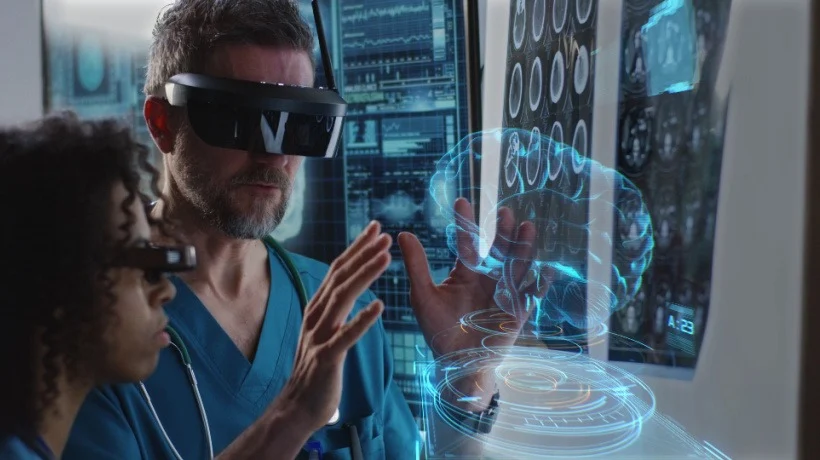
The landscape of education is changing rapidly, thanks to technological advancements that are creating new ways to learn and teach. By integrating tools like Augmented Reality (AR), Virtual Reality (VR), and Artificial Intelligence (AI), eLearning is moving towards a future that promises more engagement, adaptability, and personalization.
Click Here For: Ai-Powered Early Intervention Systems, Ai Lesson Plan Generator, Ai Grading Tools, Ai for Teachers, Ai for Student Feedback, Ai for Educators.
AR in education allows students to see and interact with three-dimensional models in real-time. It brings abstract concepts to life by overlaying digital information onto the physical world. Imagine learning about human anatomy by looking at a 3D heart floating above your desk or studying historical events as if they’re unfolding right in front of you. This level of interaction elevates the learning experience, making it more immersive and memorable.
VR takes immersion to an even higher level. With headsets and sensory gloves, learners can enter completely virtual environments designed for specific educational purposes. Virtual field trips, for instance, enable students to explore the pyramids of Egypt or the depths of the ocean without leaving the classroom. VR excels at providing hands-on experiences in a safe and controlled environment – an invaluable asset for training scenarios such as medical procedures or complex machinery operation.
AI is perhaps the most transformative of all, with its ability to personalize learning at scale. Adaptive learning systems powered by AI assess each student’s performance and provide customized content that matches their learning pace and style. This ensures that no student is left behind due to a one-size-fits-all approach. AI algorithms can also automate tasks like grading and giving feedback, freeing teachers to focus more on teaching and less on administrative work.
Click Here For: Ai for Education Administration, Ai for Education, Ai Curriculum Development, Ai Classroom Management, Ai Behavior Management.
As these technologies continue to evolve, they will likely become more integrated into mainstream education systems. They hold the promise of not only enhancing current teaching methods but also expanding educational access to remote or underserved communities through virtual classrooms and AI-driven tutoring.
The future of eLearning will be characterized by environments where students are no longer passive receivers of information but active participants in their own education journey. The fusion of AR, VR, and AI not only changes the game; it has the potential to redefine it altogether. As we embrace this new era of digital learning tools, the possibilities for innovation in education seem limitless, setting the stage for a smarter, more inclusive world of learning.
